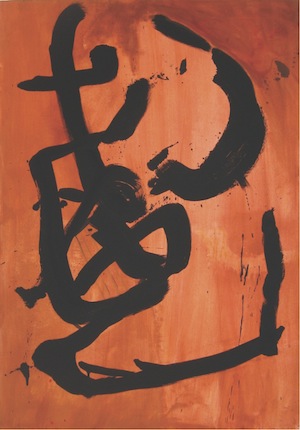Philosophy professor Alejandro Vallega pursues a line of scholarly inquiry that reflects his experience as a youth in Chile and Argentina.
Alejandro Vallega was only ten when his family fled their home in Santiago, Chile, to Argentina. One night a family friend knocked on their door and alerted his father, a left-leaning scientist, that the Pinochet regime considered him a threat. Only a few years later his family fled again, this time from Argentina to the U.S. to escape the Dirty War.
Vallega, now an assistant professor of philosophy at the UO, notes the U.S. was a key player in the internal upheavals in both these countries, both of which involved rampant human rights abuses. In the case of Chile, the regime of dictator Augusto Pinochet was notorious for abuses against “leftist” individuals who opposed his rule. Argentina’s Dirty War, initiated by a military coup, was a period of government-led violence that lasted from 1976 to 1983, resulting in the deaths of thousands of suspected dissidents.

The intersection of this complicated political history with his personal experience inspired Vallega to study the philosophy of Latin America.
Right: Painting by philosophy professor Alejandro Vallega, Milonga para Mañana: a Alfredo Zitarrosa, (Tomorrow's Milonga, to Alfredo Zitarrosa). Acrylic, chalk, and India ink on canvas, 2008.
This branch of philosophy emerged in the 1960s and ’70s and is aligned with the concept of “liberation philosophy”— the idea that modern systems of power and knowledge limit the artistic and intellectual expressions of previously colonized countries.
While it’s been centuries since the native peoples of the Americas were decimated by European colonizers and we now all participate in a supposedly homogenized global economy, Latin Americans continue to be marginalized and viewed as “other,” says Vallega. A simple example: the North American stereotype of “Mexican time.” Vallega points out that the phrase, implying that Mexicans are always late, judges the structure of a Mexican day within the western conception of what “on time” means.
In countless depictions of Latin American behavior, thinking and culture, Latins are continually diminished in similar ways, says Vallega. “Translation is great when you are in power. It’s not so great when you are being translated.”
To advance intellectual appreciation for Latin American values and expressions of thought, Vallega is conducting research and teaching courses that examine the ways in which other cultural experiences and conceptual influences (such as pre- Columbian, indigenous, Afro-Caribbean and Islamic) have contributed to ideas about life, morality and justice in Latin America. He also studies and teaches contemporary Latin-based art, literature, decolonial theory and the work of philosopher Enrique Dussel, theorist Walter Mignolo and novelist Gabriel García Márquez.
Vallega also has a personal interest in cultural expression via the visual arts, and is himself a painter.
—Patricia Hickson
 The intersection of this complicated political history with his personal experience inspired Vallega to study the philosophy of Latin America.
The intersection of this complicated political history with his personal experience inspired Vallega to study the philosophy of Latin America.





 study by UO economists, released just before the Rose Bowl, has been picked up by the media far and wide.
study by UO economists, released just before the Rose Bowl, has been picked up by the media far and wide.